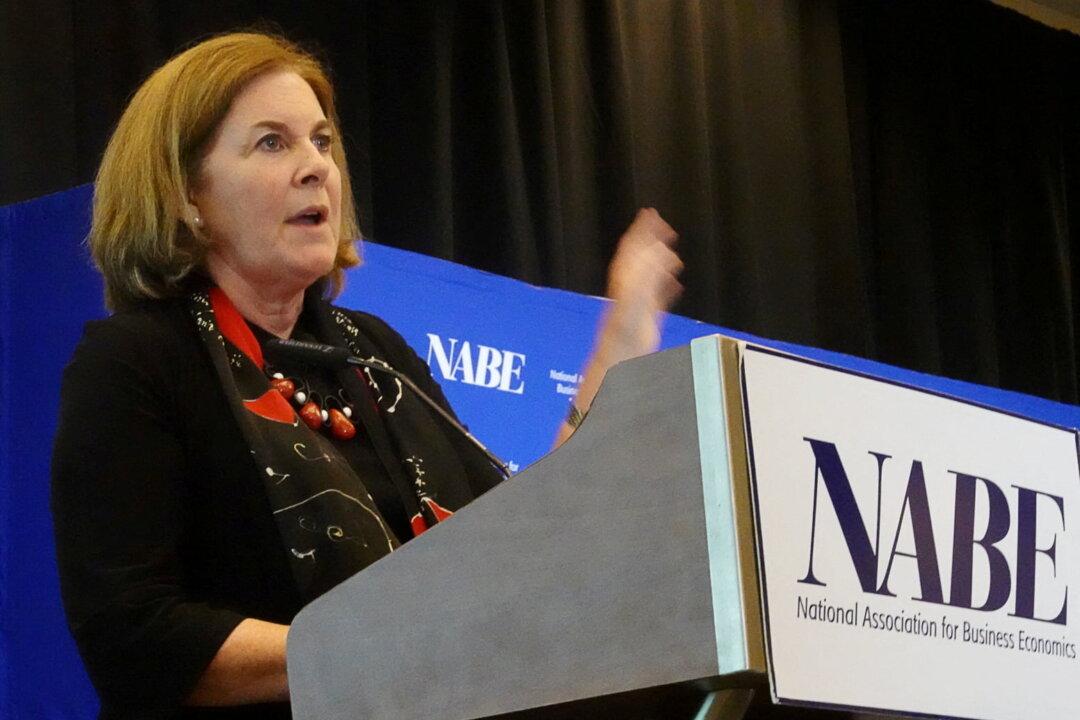Kansas City Federal Reserve Bank President Esther George on Monday said she expects the U.S. central bank to lift its target interest rate to about 2 percent by August, with further action dependent on how both supply and demand are affecting inflation.
“Fed policymakers have emphasized a commitment to act expeditiously to restore price stability, and I expect that further rate increases could put the federal funds rate in the neighborhood of 2 percent by August, a significant pace of change in policy settings” George said in remarks prepared for delivery to an agricultural symposium put on by the Kansas City Fed. “Evidence that inflation is clearly decelerating will inform judgments about further tightening.”





